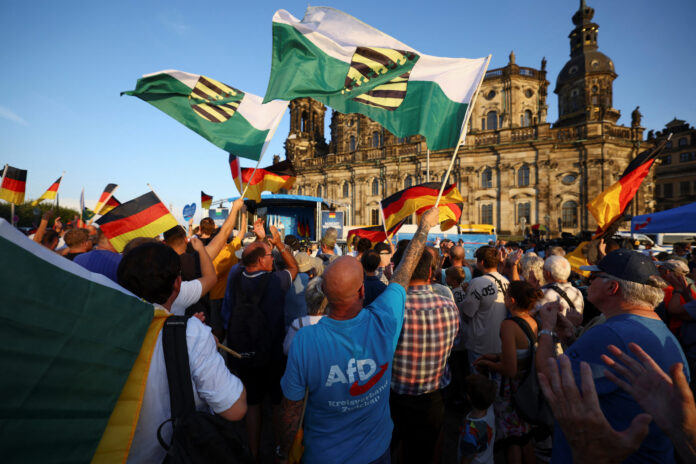In 2025, Germany will have a snap election that could alter not just its domestic policies but the future of the European Union, as well. As Europe’s biggest economy and a driving force behind decision-making in the EU, the political course set in Germany has significant repercussions. The election follows the collapse of the three-party coalition led by Chancellor Olaf Scholz, which disintegrated after bitter disputes over economic policies and immigration. With Friedrich Merz of the Christian Democratic Union (CDU) ranking first in the polls, the result could represent a turn to stricter migration controls, economic reform, and a more hardline approach to Euro integration.
The Key Players
Most recently, in October 2023, a CDU led by Friedrich Merz is ahead with 30% support in the polls. Merz has vowed to tighten the country’s immigration regime, including by turning away asylum seekers at German borders and speeding up deportations. His readiness to engage with the far-right Alternative for Germany (AfD) is highly controversial, breaking a long-standing taboo in German politics.
The AfD, which garners 20% in the polls, saw its fortunes rise with the help of anti-immigration sentiments and some Euroscepticism. Its leader, Alice Weidel, calls for closing Germany’s borders and reducing the E.U.’s influence. Meanwhile, Chancellor Scholz’s Social Democratic Party (SPD) languishes at 15%, as voters complain about economic stagnation and intra-coalition infighting.
Robert Habeck’s Greens are focused on climate policy and infrastructure investment, and the Free Democratic Party (FDP) and the far-left Sahra Wagenknecht Alliance (BSW) are slugging it out to cross the 5 percent threshold to reach parliament.
Also read: Arizona Plane Crash: Marana Airport Incident Kills One
The G.O.P. vs. Trump: Key Issues Shaping the Election
Migration and Border Controls
Migration has become a key issue, particularly following recent attacks involving migrants. The proposal, backed and criticized by both sides, is one of the suggestions made by Merz on stopping entry to asylum seekers at Germany’s borders. The CDU and AfD call for strict controls, while the Greens and SPD reject that path, stressing humanitarian responsibilities.
Economic Challenges
Germany’s economy contracted for the second straight year as energy costs remained high and the auto industry languished. The SPD and Greens want to reform the debt brake to permit more public spending, while the CDU and FDP want fiscal discipline. The AfD, by contrast, would like to bring back the Deutsche Mark and perhaps quit the EU.
Defense and Ukraine
Most parties, the CDU and SPD included, are in favor of continued military support for Ukraine. Both the AfD and BSW oppose weapons deliveries, calling for peace talks with Russia. Merz has also promised to raise defense spending to 2% of GDP, by NATO commitments.
Climate and Energy
The Greens want more renewable energy and modernized infrastructure, and the CDU and FDP are calling for the revival of nuclear power and the reduction of taxes on electricity. The AfD, however, opposes climate accords and wants to reconstruct the Nord Stream pipeline for Russian gas.
Implications for Europe
The German election has the potential to reshape the EU’s policies on migration, climate, and economic integration. A CDU government could seek to impose tougher migration controls across the EU, while a resurgent AfD would undermine EU solidarity. A Greens success could boost climate initiatives, but economic reforms will rest on coalition negotiations.
Conclusion
Germany’s snap election is not just a national affair — it’s a moment of reckoning for Europe. Should Friedrich Merz take over as chancellor, conservative priorities and stricter controls on migration would be back on the table for the EU. However the influx of the AfD and the challenges of coalition-building inject uncertainty into the verdict. Germany heads to the polls today in an election that will not only define the shape of the country for years but also the trajectory of the European Union.








